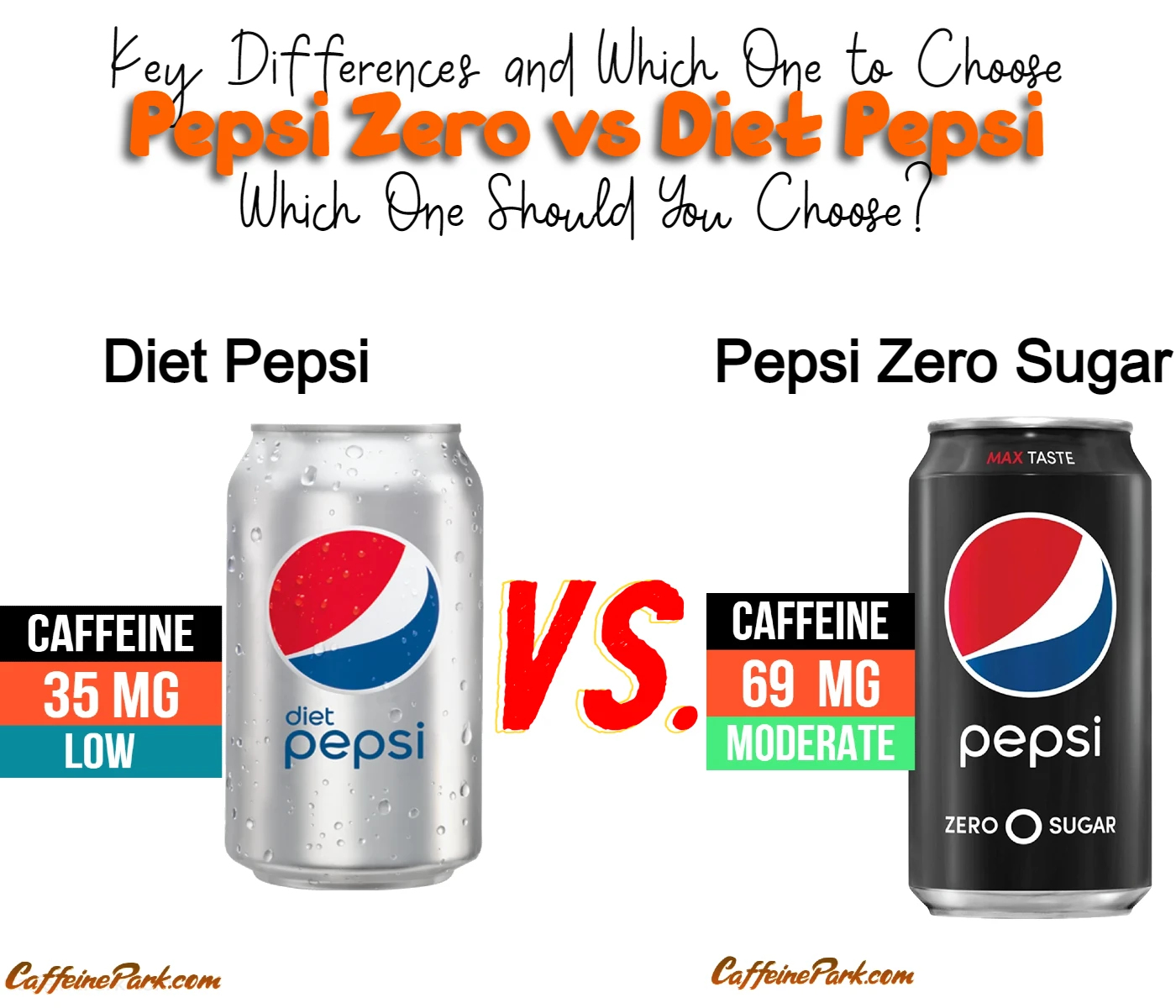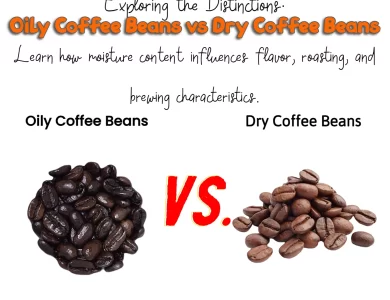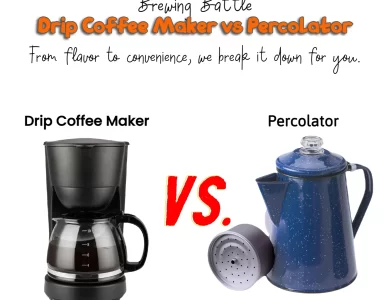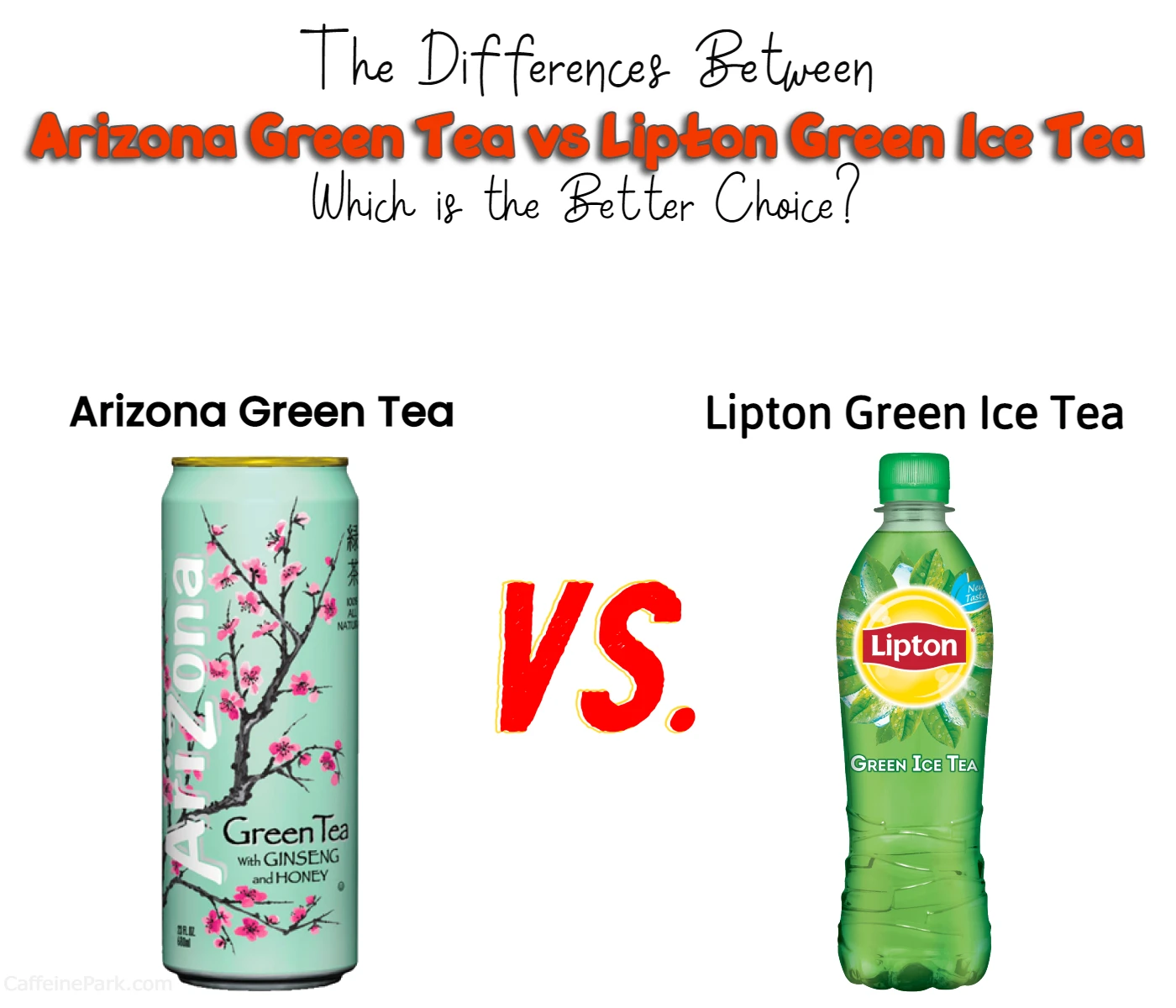Instant Coffee vs Ground Coffee
Exploring the Differences between Ground Coffee and Instant Coffee

Whether you’re a busy bee looking for convenience or a coffee connoisseur seeking the ultimate flavor experience, it’s important to understand the differences between these two options. In this blog, we’ll dive into the world of coffee and explore the nuances that set instant coffee and ground coffee apart. From taste and aroma to preparation time and customization, we’ll cover it all. So grab your favorite mug, sit back, and let’s unravel the mysteries of instant coffee and ground coffee together.
If you’re someone who values speed and convenience without compromising too much on taste, instant coffee might be your go-to choice. It’s perfect for those busy mornings when you need a quick caffeine fix or for those camping trips where packing light is essential. Instant coffee dissolves easily in hot water, requiring minimal effort to prepare a satisfying cup. On the other hand, if you’re a coffee enthusiast who relishes the art of brewing and desires a more immersive sensory experience, ground coffee is likely to be your preferred option. Grinding fresh coffee beans unlocks a world of flavors and aromas that are sure to tantalize your taste buds. Plus, with ground coffee, you have the freedom to experiment with different brewing methods, grind sizes, and water ratios to achieve that perfect balance of flavors.
Now that you have a glimpse into the fascinating world of instant coffee and ground coffee, it’s time for you to choose the brew that suits your lifestyle and preferences. Whether you opt for the convenience of instant coffee or the customization possibilities of ground coffee, remember that the joy of coffee lies in the experience it brings. So, explore, savor, and enjoy your favorite cup of joe, however, you choose to make it. If you want to dive deeper into the nuances of coffee, don’t forget to read the rest of my blog. Cheers to your coffee adventures!
Here’s a quick table summarizing the differences between instant coffee and ground coffee:
| Aspect | Instant Coffee | Ground Coffee |
|---|---|---|
| Preparation Time | Quick and easy | Requires more time and effort |
| Taste and Aroma | Simplified flavor and aroma | Rich and complex flavors and aromas |
| Brewing Methods | Limited options | Wide range of brewing methods |
| Foam and Texture | Minimal foam and texture | Can achieve foam and creamy texture |
| Nutritional Content | Slightly lower in antioxidants | Retains more natural compounds |
| Accessibility | Widely available | May require more effort to find specialty options |
| Price | Generally more affordable | Can be more expensive, especially for specialty options |
| Customization | Limited control over flavor and strength | Full control over brewing variables |
| Environmental Impact | Packaging waste | More eco-friendly with reusable filters |
| Convenience | Quick and easy | Requires more preparation and equipment |
| Caffeine Content | 27 mg to 173 mg per 8 oz serving | 95 mg to 200 mg per 8 oz serving |
Difference between Instant Coffee and Ground Coffee
If you’re a coffee lover, you probably know that there are countless ways to enjoy this aromatic and energizing beverage. From specialty drinks at your favorite café to brewing a fresh cup at home, coffee has become an integral part of our daily routine. When it comes to preparing coffee, two popular options are instant coffee and ground coffee. But what exactly sets them apart?
Instant Coffee: A Convenient Cup of Joe
Instant coffee, also known as soluble coffee or coffee powder, is a type of coffee that has been brewed and then dehydrated into granules or powder form. It offers a quick and hassle-free way to make coffee, making it a popular choice for those who are always on the go or prefer convenience in their daily routine.
How is Instant Coffee Made?
The process of making instant coffee involves several steps. First, high-quality coffee beans are roasted and ground. Then, the ground coffee is brewed through either a freeze-drying or spray-drying method. Both methods involve removing the water content from the brewed coffee to create a concentrated form. The resulting concentrate is then transformed into granules or powder, which can be easily dissolved in hot water to create a cup of coffee.
Pros and Cons of Instant Coffee
Instant coffee offers several advantages that make it appealing to a wide range of coffee enthusiasts. Let’s explore some of its pros and cons:
Pros:
- Convenience: Instant coffee is incredibly convenient to prepare. Simply add hot water to the granules or powder, stir, and your coffee is ready to enjoy. This makes it a popular choice for busy individuals or those who don’t have access to brewing equipment.
- Long Shelf Life: Due to the dehydration process, instant coffee has a much longer shelf life compared to ground coffee. It can be stored for months or even years without losing its flavor or aroma.
- Portability: Instant coffee is lightweight and easy to carry, making it an excellent option for camping trips, travel, or any situation where you may not have access to fresh coffee beans or a coffee maker.
- Consistency: Since instant coffee is pre-brewed and dehydrated, you can expect consistent flavor and strength with each cup. This can be beneficial if you prefer a reliable coffee experience.
Cons:
- Flavor and Aroma: Instant coffee generally lacks the complex flavor and aroma profiles that are found in freshly ground coffee. The dehydration process can result in a loss of certain volatile compounds, leading to a less nuanced taste.
- Quality: The quality of instant coffee can vary significantly depending on the brand and manufacturing process. Some instant coffees may contain lower-quality beans or additives to enhance the flavor, which can impact the overall taste experience.
- Limited Variety: Instant coffee options are usually limited in terms of variety compared to ground coffee. You may find fewer choices when it comes to different coffee origins, blends, or roasts.
Now that we’ve explored the world of instant coffee, let’s shift our focus to ground coffee and see what it has to offer.
Ground Coffee: Unleashing the Aromas and Flavors
Ground coffee is the traditional form of coffee that most people are familiar with. It involves grinding roasted coffee beans just before brewing to maximize freshness and flavor. Ground coffee offers a more hands-on approach to coffee preparation and is often favored by coffee enthusiasts who appreciate the art of brewing and the sensory experience it provides.
The Art of Grinding Coffee
Grinding coffee beans is a critical step in the coffee-making process. The size and consistency of the coffee grounds can significantly impact the taste of the final brew. There are various methods and equipment available for grinding coffee, including blade grinders, burr grinders, and even manual methods like mortar and pestle.
Pros and Cons of Ground Coffee
Ground coffee comes with its own set of advantages and disadvantages. Let’s take a closer look:
Pros:
- Freshness and Flavor: Ground coffee offers the opportunity to enjoy the full freshness and flavor of the coffee. By grinding the beans just before brewing, you release the aromatic oils and compounds, resulting in a more vibrant and complex taste experience.
- Customization: With ground coffee, you have more control over the brewing process. You can adjust the grind size to suit different brewing methods, such as pour-over, French press, or espresso, allowing you to experiment and find your preferred taste profile.
- Variety: Ground coffee opens up a world of possibilities in terms of coffee origins, blends, and roasts. You can explore different flavors, acidity levels, and intensities to find the perfect cup that matches your preferences.
- Sustainability: If you’re conscious about reducing waste, using ground coffee gives you the option to choose reusable filters and minimize single-use packaging, promoting a more sustainable coffee routine.
Cons:
- Time and Effort: Grinding coffee beans and brewing with ground coffee requires more time and effort compared to instant coffee. This may not be ideal for individuals with a busy schedule or those seeking a quick caffeine fix.
- Equipment: To enjoy ground coffee, you’ll need a coffee grinder or access to pre-ground coffee. Investing in a high-quality grinder can be an additional expense, especially for those starting their coffee journey.
- Shorter Shelf Life: Ground coffee has a shorter shelf life compared to instant coffee. The exposure of the ground beans to air accelerates the oxidation process, causing the coffee to lose its freshness and flavor over time.
- Messiness: Grinding coffee beans can be messy, with coffee grounds often ending up on countertops and in various nooks and crannies. Cleaning the grinder and managing the grounds requires some extra effort.
Here’s a quick table summarizing the pros and cons of ground coffee and instant coffee:
| Ground Coffee | Instant Coffee | |
|---|---|---|
| Pros | Rich flavor and aroma | Convenient and quick to prepare |
| Wide range of brewing methods | Long shelf life and easy storage | |
| Customizable brewing variables | No equipment or brewing knowledge required | |
| Suitable for specialty coffee drinks | Affordable and budget-friendly | |
| Eco-friendly with reusable filters | Dissolves easily in hot water | |
| Cons | Requires grinding and brewing equipment | Limited flavor depth and complexity |
| Longer preparation time | Lower quality and milder taste compared to fresh | |
| Can be more expensive, especially specialty blends | Limited control over flavor and strength | |
| May produce waste from packaging | Can contain more additives and preservatives | |
| Not as convenient for on-the-go or travel | Less environmentally friendly due to packaging |
Taste and Aroma
Taste and aroma play a significant role in the coffee-drinking experience. While instant coffee offers convenience, it generally lacks the rich and complex flavors that freshly ground coffee can provide. Ground coffee allows you to enjoy the full spectrum of flavors and aromas that come from freshly roasted beans. The process of grinding the beans just before brewing releases the oils and compounds that contribute to the enticing aroma and nuanced taste. If you value the sensory experience and appreciate the subtle notes in your coffee, ground coffee is likely to satisfy your taste buds.
Brewing Methods
Another factor to consider is the brewing methods that are compatible with each type of coffee. Instant coffee is designed to dissolve quickly in hot water, making it suitable for methods like pour-over, French press, or simply stirring it into a cup. It is also commonly used in recipes for baking or cooking. Ground coffee offers more versatility in terms of brewing methods. You can choose from a variety of options such as pour-over, French press, espresso machines, AeroPress, or cold brew. Each brewing method can bring out different flavors and characteristics in the coffee, allowing you to experiment and find your preferred brewing style.
Here’s a quick table comparing the brewing methods for ground coffee and instant coffee:
| Brewing Methods | Ground Coffee | Instant Coffee |
|---|---|---|
| Pour-over | Yes | No |
| French Press | Yes | No |
| Espresso | Yes | No |
| Aeropress | Yes | No |
| Moka Pot | Yes | No |
| Cold Brew | Yes | No |
| Single-serve Pods | Yes | Limited options |
| Instant Brewing | No | Yes |
Crema and Specialty Drinks
If you enjoy specialty coffee drinks like espresso, cappuccino, or lattes, ground coffee is the way to go. These drinks often rely on the extraction of espresso shots as a base, and instant coffee typically does not produce the same level of crema or intensity required for these beverages. The fine grind and pressure used in espresso machines create a unique flavor profile and texture that instant coffee cannot replicate. So, if you’re a fan of café-style drinks or like to explore latte art, ground coffee is the better choice.
Quantity and Serving Size
When it comes to quantity, instant coffee often allows for more flexibility. You can easily control the serving size by adjusting the amount of coffee granules or powder you use. It’s quick and convenient to make a single cup or multiple cups of instant coffee based on your needs. Ground coffee, on the other hand, may require more precision in measuring the coffee-to-water ratio, especially if you’re using brewing methods like pour-over or espresso. This can be advantageous if you prefer to have more control over the strength and flavor of your coffee.
Preparation Time
Instant coffee is known for its quick and easy preparation. All you need to do is add hot water to the coffee granules or powder, stir, and your coffee is ready to enjoy. This makes it a convenient option for those who are always on the move or prefer a hassle-free brewing process. Ground coffee, on the other hand, requires more time and effort. You’ll need to grind the beans, measure the right amount, and choose a suitable brewing method, which can take a few minutes depending on your equipment and technique. If you have the time and enjoy the ritual of preparing coffee, the process of brewing ground coffee can be a rewarding and enjoyable experience.
Foam and Texture
If you appreciate the foam or froth on top of your coffee, ground coffee provides better opportunities to achieve this. Brewing methods like espresso or using a milk frother with a cappuccino or latte require the use of finely ground coffee to extract the oils and create a creamy foam. Instant coffee, on the other hand, doesn’t typically produce the same level of foam or texture, which can be a deciding factor for those who enjoy the visual appeal and velvety mouthfeel of specialty coffee drinks.
Nutritional Content
Coffee itself is a low-calorie beverage, but when it comes to nutritional content, there can be some differences between instant coffee and ground coffee. Instant coffee may contain slightly lower levels of certain nutrients and antioxidants compared to freshly ground coffee. The processing methods involved in creating instant coffee can cause a loss of some of the natural compounds found in coffee beans. However, it’s important to note that the differences are generally minimal, and both types of coffee can still provide health benefits when consumed in moderation.
| Nutritional Content | Ground Coffee | Instant Coffee |
|---|---|---|
| Calories | Low-calorie beverage | Low calorie beverage |
| Caffeine | Varies based on serving size and brewing method | Varies based on serving size and brand |
| Antioxidants | Retains more natural compounds | Slightly lower levels compared to freshly ground |
| Micronutrients | Contains small amounts of minerals | Contains small amounts of minerals |
| Additives and Preservatives | Generally free of additives and preservatives | May contain additives or preservatives depending on brand |
| Acidity | Varies based on coffee beans and roast level | Varies based on coffee beans and processing |
| Dietary Fiber | Negligible amounts | Negligible amounts |
Accessibility and Availability
Instant coffee is widely available and can be found in most grocery stores, convenience stores, and even online. It offers accessibility and convenience, particularly in areas where specialty coffee shops or fresh coffee beans may not be easily accessible. Ground coffee, on the other hand, may require a bit more effort to obtain. While it is also commonly available in stores, the options may be more varied, with different brands, roasts, and origins to choose from. Additionally, specialty coffee shops and local roasters often specialize in providing high-quality whole beans or freshly ground coffee for those seeking a more premium coffee experience.
Personal Preference
Last but not least, personal preference is a crucial factor in deciding between instant coffee and ground coffee. Everyone’s taste buds and preferences are unique. Some people may enjoy the convenience and familiar taste of instant coffee, while others may find more satisfaction in the process, aroma, and flavors of freshly ground coffee. It’s important to experiment and explore both options to determine which one resonates with your personal taste and lifestyle.
Price
When it comes to price, instant coffee is generally more affordable than ground coffee. The production process of instant coffee allows for mass production and longer shelf life, making it a cost-effective option. Ground coffee, on the other hand, may be more expensive due to factors such as the quality of the beans, the roasting process, and the packaging. However, it’s worth noting that specialty or premium instant coffees can be more expensive than regular instant coffee.
Brewing Control
One of the significant advantages of ground coffee is the level of control you have over the brewing process. You can adjust variables like the grind size, water temperature, and brewing time to achieve your desired strength and flavor. This flexibility allows coffee enthusiasts to experiment with different techniques and create a customized brewing experience. Instant coffee, on the other hand, offers less control as the coffee is already brewed and processed, leaving fewer opportunities for customization.
Caffeine Content
Caffeine content can vary in both ground coffee and instant coffee depending on various factors. Here’s a general overview of the caffeine content in different coffee types:
- Ground Coffee: The caffeine content in ground coffee can range from approximately 95 mg to 200 mg per 8-ounce (240 ml) serving. This range is influenced by factors such as the type of coffee beans used, the roast level (light, medium, dark), and the brewing method employed. Darker roasts typically have slightly less caffeine than lighter roasts, as the roasting process can decrease caffeine levels.
- Instant Coffee: Instant coffee generally contains slightly less caffeine compared to ground coffee. The caffeine content in instant coffee can vary from around 27 mg to 173 mg per 8-ounce serving. The specific caffeine content depends on the brand, the type of Instant coffee used in the production of instant coffee, and the concentration of coffee solids in the final product.
It’s important to note that these values are approximate and can vary among different brands and products. Additionally, factors such as coffee strength, brewing variables (like water temperature and extraction time), and individual serving sizes can also impact the caffeine content in a cup of coffee.
Here’s a quick table comparing the caffeine content of ground coffee and instant coffee:
| Caffeine Content | Ground Coffee | Instant Coffee |
|---|---|---|
| Amount | Varies based on serving size and brewing method | Varies based on serving size and brand |
| Generally Higher? | Yes | Yes |
| Factors Affecting | Type of coffee beans, roast level, grind size | Coffee beans used, production process |
| Potential Range | 95 mg to 200 mg per 8 oz serving | 27 mg to 173 mg per 8 oz serving |
| Additional Factors | Coffee strength, brewing variables | Dissolution process, amount of instant coffee used |
Health Considerations
Coffee, in general, offers various health benefits, but there are a few factors to consider. Instant coffee may contain slightly lower levels of antioxidants compared to freshly ground coffee due to the processing methods involved. However, the difference in antioxidant content is relatively small and shouldn’t be a major concern unless you rely heavily on coffee for antioxidant intake. Additionally, some instant coffees may contain additives or fillers, so it’s essential to read the ingredient list if you have specific dietary restrictions or preferences.
Environmental Impact
When it comes to sustainability, ground coffee has an advantage over instant coffee. Instant coffee production involves additional packaging materials, such as jars, sachets, or single-serve packets, which can contribute to waste. Ground coffee, especially if you opt for bulk purchases and reusable filters, allows for a more eco-friendly approach. Additionally, many coffee enthusiasts prefer to support local roasters and purchase ethically sourced beans, which can have a positive impact on the environment and the coffee-growing communities.
Making the Choice: Which is Right for You?
Now that we’ve examined the characteristics of both instant coffee and ground coffee, you may be wondering which one is the best fit for you. Ultimately, the decision comes down to your personal preferences, lifestyle, and priorities when it comes to coffee.
If convenience and speed are top priorities for you, instant coffee is the way to go. It offers a quick and easy solution that can be enjoyed anywhere, anytime. Whether you’re rushing to work or packing for a trip, instant coffee provides a caffeine boost without compromising too much on taste.
On the other hand, if you savor the process of brewing, enjoy the sensory experience, and value the nuances of flavor and aroma, ground coffee is likely your best bet. Grinding your own beans and experimenting with different brewing methods allows you to unlock the full potential of coffee and create a truly personalized cup.
In summary, instant coffee and ground coffee each have their own unique characteristics and advantages. Understanding these differences empowers you to make an informed decision that aligns with your coffee preferences and lifestyle. So go ahead, savor the aroma, and enjoy your perfect cup of coffee, however you choose to make it!
FAQs
The main difference lies in the processing and preparation. Instant coffee is made from brewed coffee that has been freeze-dried or spray-dried to create a soluble powder or granules. Ground coffee, on the other hand, is made from roasted coffee beans that are then ground to different consistencies based on brewing preferences.
Yes, there is a noticeable taste difference between the two. Instant coffee tends to have a milder and less complex flavor profile compared to ground coffee. Ground coffee offers a wider range of flavors and aromas due to the freshness and extraction of the coffee oils during brewing.
Instant coffee is generally more convenient to prepare. It dissolves quickly in hot water, requiring minimal effort. Ground coffee, on the other hand, requires grinding the beans and using a brewing method such as pour-over or French press, which takes more time and preparation.
In general, instant coffee tends to have slightly higher caffeine content per serving compared to ground coffee. The dehydration process used in creating instant coffee concentrates the caffeine. However, the exact caffeine content can vary depending on the brand and serving size.
Ground coffee offers more customization options. You can adjust variables like the grind size, water temperature, and brewing time to control the flavor and strength of your coffee. Instant coffee, on the other hand, offers limited control as the coffee is already brewed and processed.
Ground coffee is generally considered to be more environmentally friendly. Instant coffee production involves additional packaging materials, such as jars or sachets, which can contribute to waste. Ground coffee allows for bulk purchases and the use of reusable filters, reducing packaging waste.
Yes, there is often a price difference. Instant coffee is generally more affordable compared to ground coffee. The mass production and longer shelf life of instant coffee make it a cost-effective option. Ground coffee, especially specialty or premium blends, can be more expensive due to factors such as bean quality, roasting process, and packaging.
Yes, instant coffee can be used as a substitute for ground coffee in recipes that call for coffee flavoring. It dissolves easily in water and can be added to baked goods or desserts to impart a coffee taste. However, it may not provide the same depth of flavor as using freshly brewed ground coffee.
Read More:
Contents
- Difference between Instant Coffee and Ground Coffee
- Instant Coffee: A Convenient Cup of Joe
- Ground Coffee: Unleashing the Aromas and Flavors
- Taste and Aroma
- Brewing Methods
- Crema and Specialty Drinks
- Quantity and Serving Size
- Preparation Time
- Foam and Texture
- Nutritional Content
- Accessibility and Availability
- Personal Preference
- Price
- Brewing Control
- Caffeine Content
- Health Considerations
- Environmental Impact
- Making the Choice: Which is Right for You?
- FAQs





